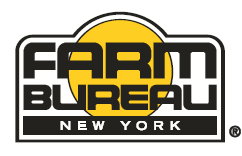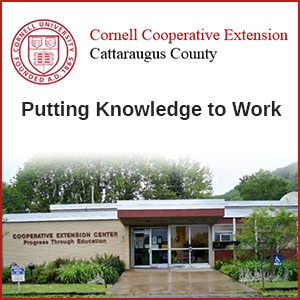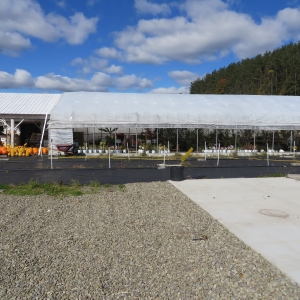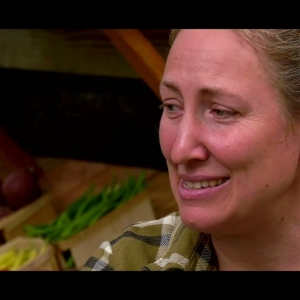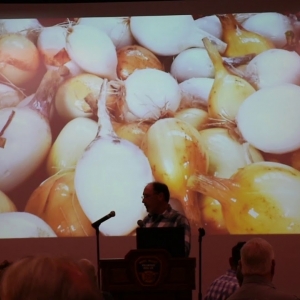Other Ag News:
WASHINGTON, D.C., November 25, 2025 – U.S. Secretary of Agriculture Brooke L. Rollins today announced that Nevada has met USDA’s rigorous "at least equal to" food safety standard and will be joining the State Meat and Poultry Inspection (MPI) Program. Nevada’s participation expands local inspection capacity, food safety oversight, and boosts market access for small and very small processors.
(Washington, D.C., November 24, 2025) – U.S. Secretary of Agriculture Brooke L. Rollins today announced the U.S. Department of Agriculture’s (USDA) intent to purchase up to $30 million in fresh fruit from American farmers and producers to distribute to food banks and nutrition assistance programs across the country. These purchases are being made through USDA’s authority under Section 32 of the Agriculture Act of 1935 and will assist producers and communities in need.
(Washington, D.C., November 21, 2025) – Today, the U.S. Department of Agriculture (USDA) is excited to highlight the launch of the NEW Unified New World screwworm (NWS) website, screwworm.gov.
The National Sustainable Agriculture Coalition (NSAC) traces its earliest roots to the farm crisis of the 1980s, when cycles in the global economy and federal agricultural policy combined to push farmers losing their farms into the national spotlight. The 330,000 farm families who lost their farms between 1978 and 1992 were, unfortunately, not the last. The total number of farms has continued to steadily decrease since then, with the loss of mid-sized farms at a particularly concerning rate.
Within the past couple of years, there has been mounting evidence suggesting a tipping point for farmers and ranchers not unlike that of the 1980s. Today, high production costs, unstable markets, and low crop prices driven by uncertain export markets and overproduction have converged to create an economic climate in which farmers’ livelihoods are threatened. Earlier this year, hundreds of farmers – reportedly more than 500 – attended a single meeting to ask for help. Moments of farm crisis – like the one we are in now – stand out from the decades-long drumbeat of farm losses across agriculture.
While the current threat of farm loss is driven by global economies and issues far outside of farmers’ control, the fate of farm families is and will continue to be determined by the structure of US federal farm programs. Agriculture will always have disruptive events, from market disruptions and natural disasters to pandemics and pests. Yet the structure of federal policy determines the impact of those disruptions on farm families, their communities, the land, and the country. Too often federal programs have been structured to amplify the benefits of scale, while further eroding the strength of our communities.
Keeping farmers on the land is in NSAC’s DNA. For decades, NSAC has championed policies that promote markets and production systems that build farmers’ autonomy and self-determination and lessen their vulnerability to disasters. Today, federal policy can still be a vehicle to build a truly sustainable, just agricultural economy – one that sustains farm families and livelihoods, protects natural resources, and supports communities nationwide.
This blog post offers an in-depth examination of the current state of the US farm economy, the impacts of a down farm economy, and the federal policy solutions necessary to put the US agricultural economy – and the farmers, ranchers, and communities who depend on it – on firm footing for the future.
- The Current Farm Economy
- Impacts to Individuals, Families, and Communities
- Comprehensive and Proactive Solutions
- What Comes Next
The Current Farm Economy
The US farm economy can be exceedingly complex to navigate. Nationwide, there are more than 1.9 million farms. These farms – from rural communities to urban centers and everywhere in between – are incredibly diverse in almost every way imaginable.
The overwhelming majority of US crop production is represented by just two commodities – corn and soybeans – which were planted on roughly 175 million total acres in 2023. Broadening the scope slightly, wheat (50 million acres) and cotton (10 million acres) enter the picture. Beyond row crops, there are hundreds of thousands of specialty crop farmers in the US, growing almost every imaginable variety of fruit, nut, and vegetable. In 2023, 4.3 million acres were devoted to vegetables and just over 6 million acres in orchard production. Meanwhile, 568,972 farms – roughly 30% of all US farms – specialized in cattle or dairy production in 2022. Another 19% of US farms specialize in other livestock: hogs and pigs, poultry and eggs, sheep and goats, and beyond.
Each farmer must build their own business model – factoring in their unique scale, type of production, and market – to achieve success and longevity. Each of these factors carries with it its own risks and opportunities for growth and stability. Consequently, it’s important to note that farmers can have significantly divergent experiences within the same farm economy. Some may be particularly well positioned to navigate a challenging economy thanks to their strategy or even where they farm, while others may have an entirely different experience.
Yet all farmers – whether they are raising livestock or growing row crops, specialty crops, or even both – face similar hurdles: namely, production costs, crop prices, and market access.
Production costs
One of the most significant costs nearly all farmers face is for inputs – items produced off farm – that they deem necessary to their farm’s success. Some of the most common production costs include fertilizers, pesticides, and seeds. Determined in large part by global market conditions, fertilizer and pesticide prices are difficult, if not impossible to control with domestic policy, and recent turbulence in most global markets has only exacerbated the problem. In 2024, the cost to farmers of these combined crop inputs (chemicals, fertilizers, and seeds) rose by nearly $20 billion dollars (comparing 2024 to 2016). During that time period, pesticide production expenses jumped 42%, seed expenses jumped 26%, and fertilizer, lime, and soil conditioner expenses rose 44%. During that same time window, the amount of US acres in farms declined significantly, signalling that dramatic increases in production expenses are not being driven by expanded acreage.
Data from ERS, 2025 expenses are forecastCrop prices
While production costs have risen significantly in recent years, nationwide, farmers are also facing low crop prices. Since the peak highs in 2021 and 2022, crop prices for corn, soybeans, wheat, and cotton have all fallen significantly – corn, soybeans, and wheat are all down more than 50% per bushel, while cotton is down more than 40%. On the back of these low prices, total crop cash receipts – including receipts from farm products like fruits and nuts – are forecast to decrease $6.1 billion (2.5 percent) in 2025. When focusing on some of the most prevalent row crops, we see that the combined cash receipts are even lower – corn, soybeans and wheat are forecast to fall by $6.8 billion in 2025.
Data from ERS, 2025 receipts are forecastSimilarly, many specialty crop prices have either dropped or failed to keep pace with the rising production costs highlighted above. Cash receipts for vegetables and melons are forecast to be $520 million lower in 2025 than in 2024 and nearly $1B lower than 2023. At the same time, specialty crop producers have faced increasing production and labor costs. Specialty crop farms also have the highest labor costs as a portion of total cash expenses and are particularly affected by rising labor costs and labor shortages.
The factors driving low prices are, of course, multifaceted. Farm policies and economic structures incentivize maximizing yield, which often result in overproduction of major US crops – corn, soybeans, wheat – creating a price glut that quickly and severely depresses prices for producers. Similarly, unstable domestic and international market access also impacts the price that farmers receive.
Market access
The US agricultural economy is heavily reliant on international markets. From livestock to grains, commodity production in the US has long exceeded domestic demand for the majority of major commodities. Because domestic demand is exceeded, the US agricultural economy relies on – and is exposed to – often volatile international markets. Sudden changes to trade rules and tariffs have made our usual buyers – like China and Argentina – nervous. Because they cannot reliably count on us, they are now buying from other countries instead. This has introduced significant uncertainty for farmers about markets and dropped crop prices – soybean sales are down 23% from the same time last year because of lower prices. While recently announced trade deals could shift this trend, legitimate uncertainties remain.
Data from FASInstability of Federal Partnership
Finally, it is worth stating that 2025 has brought unprecedented instability in federal partnership. Although stability is essential for farm planning, farmers have experienced unexpected contract cuts and unpredictable, abrupt trade policy shifts. In January 2025, the US Department of Agriculture (USDA) began freezing and even terminating the lawfully held contracts of farmers and farmer-serving organizations, disrupting planning for the 2025 planting season.
From commodity farmers selling into international markets to specialty growers selling at a market down the street, collectively, these freezes and terminations have been felt across all scales and types of American agriculture. Each farmer develops their own unique financing strategy, and federal programs can be an essential piece in the puzzle to demonstrate stable income for the year. But when federal contracts are frozen or terminated with little warning, it not only casts doubt on government dependability, it ultimately undercuts the ability of federal programs to serve as a stable support for farmers of all scales. The damage is much more extensive than just the loss of that specific income. Sudden loss of any source of federal support can impact a producer’s ability to work with their lenders to secure or maintain necessary lines of operating credit for the growing season.
This uncertainty has permeated federal programs throughout 2025, impacting programs that help farmers enter new domestic markets, adapt to natural disasters and add-value to their crop, and expand access to USDA programs and services. It has even jeopardized popular farmer-led programs as recently as September 2025. Over the summer, Congress passed and the President signed a budget reconciliation bill. This bill cut billions in food assistance and funneled that savings toward commodity payments, all while programs that support the vast majority of farmers and rural communities are excluded from the bill entirely. On top of all of this, USDA has lost nearly 20,000 employees since January while simultaneously proposing a massive department-wide reorganization without any input from farmers – both of which serve to undermine USDA’s support for farmers.
Sum of the Parts
When the tide of these baseline factors turns bad, keeping farmers in business – and on the land – requires a federal response that is finely tuned to the full range of farm and farmer needs.
By nearly any measure 2025 has presented American farmers with an array of serious challenges that, collectively, threaten farm viability nationwide. In fact, a recent survey of agricultural lenders indicates that less than half of US farmers are likely to be profitable in 2026. Yet, this moment of farm financial crisis is not particularly unique, and is just one in a long line of past and future disruptions. The ongoing loss of farms and the difficulty for new farmers to enter farming demonstrate where farm safety net programs have gaps, and how these programs are built to pick winners and losers. Farms going out of business is not a necessity of these disruptions, or even a function of disruptions, but a demonstration that federal safety net programs are not universal.
Over time, intentional decisions made by policy leaders have pushed many farmers toward narrow production choices that often make it difficult to diversify or explore new markets without sacrificing stability. Simultaneously, suffocating consolidation – among but not limited to input producers and livestock processors – leaves farmers squeezed on both ends. Taken together, these dynamics prevent many farmers – whether they grow crops, livestock, or both – from creating a business that can better buffer against shocks, and leaves them highly exposed to risk.
Ultimately, in this model of agriculture, some years can be good, yet many years are not, even with government support: between 2017 and 2022, more than 140,000 farms were shuttered. Of those, 128,000 (91%) were smaller than 1,000 acres and 82% were smaller than 500 acres. Farms over 5,000 acres were the only category that increased – by over 5% – during this period. And no matter their size, farmers themselves faced “incredible financial, legal, and emotional stress.” Unfortunately, the impacts don’t end there.
Impacts
When the agricultural economy suffers, farmers suffer – ultimately, leading farmers and ranchers out of business. When a farm goes out of business, individuals, families, and communities are impacted, first and foremost as people. Rural communities have alarming rates of mental illness, depression, and suicide. Furthermore, farmers are 3.5 times more likely to die by suicide than the general population, and the suicide rate has increased by 46% in rural America in the last 20 years.
The loss of farms also exacerbates land consolidation. While farm sector consolidation may carry some efficiencies in the aggregate, unchecked consolidation creates a fragile farm economy that is exceedingly expensive for taxpayers and siphons vitality from farming communities. Data from USDA’s most recent Census of Agriculture continues to show a long-term, concerning trend of more land held by ever fewer farms. As farms go out of business, that land is often subject to development pressure, threatening to permanently remove it from agricultural production. If the land stays in production, it is often bought by a neighbor or corporate investor. Over time, this simple process leaves more and more land in the hands of fewer and fewer farmers. With fewer farms – oftentimes not owned by the farmer themself – the economic diversity and resilience of American agriculture is diminished, leaving it more vulnerable to shocks and dependent on federal payments.
Data from Census of AgricultureLast but not least, during challenging economic times, not all farmers are impacted equally. Compared to established farmers, new and beginning farmers tend to have less capital on hand, making it more difficult to absorb and survive economic shocks like those presented in 2025. This fact threatens an entire generation of new farmers unless we act swiftly.
Comprehensive and Proactive Solutions
Clearly, farming is a challenging enterprise. Consequently, much of federal food and agriculture policy is rightly structured around supporting farmers when times are tough. The farm safety net – including federal crop insurance, commodity support programs, and disaster assistance programs – is an essential pathway for farmers to manage risk.
While the increased farm subsidies included in the 2025 budget reconciliation bill may offer some farmers short-term relief, relying solely on commodity support programs is not a durable solution to farmers’ financial challenges, in part because the current farm safety net has significant gaps in coverage and efficiency. Moreover, previous farm bill efforts, including the 2018 Farm Bill, proved that simply increasing subsidies has failed to stabilize the farm economy over the long term, leaving producers vulnerable once again.
Yet even if ideally constructed, the farm safety net is just one aspect of building a thriving agricultural economy. Federal policy must holistically promote markets and invest in production systems that build all farmers’ autonomy and self-determination and lessen their vulnerability to disasters. Ultimately, we cannot afford to continue looking only at short-term solutions while ignoring the warning signs of longer term structural issues.
Rather, our immediate goal must be to keep farms in business now, coupled with a commitment to overhauling the safety net and building out financial resilience. While we face economic signals of farm distress similar to the 1980s, it is time for a fundamental change in how the US responds to those signals. To keep farmers on the land, it’s imperative.
Below, NSAC offers a non-exhaustive set of policy solutions as a starting point for what is needed in both the immediate and near term. Given the diversity of American agriculture, policy solutions may not apply to every farmer and rancher. For example, some may be tailored to commodity crop producers or livestock producers, whereas others are tailored toward specialty crop growers.
Collectively, these solutions prioritize keeping farms in business in the short term and building farm financial independence, self determination, and the ability to weather all nature of disruptions in the long term. These solutions – which reflect the importance of farms at all scales and of all products – prioritize farmers’ entrepreneurship, stewardship, and connection to their community while reducing dependence on taxpayer funds. We encourage Congress and USDA to utilize the full range of tools at their disposal, including government procurement, marketing, regulatory and granting programs, to increase farm viability in both the short and long terms.
The solutions are structured as follows:
- Immediate Needs
- Farm Loans, Cash Flow Assistance, and Revenue-Based Relief
- Rental Payments for Marginal Land
- Enhanced Support for Input-Reducing Conservation Practices
- Stronger, Reliable Markets for American Farmers
- Near-Term Needs
- Prioritize the Next Generation of Farmers
- Comprehensive Federal Food Procurement Reform
- Strengthen Regional Food Supply Chains
- Build a Stronger Farm Safety Net for All
The solutions offered in this section are arranged as indicated above based on the immediacy necessary to keep farmers on the land. Immediate solutions include cash-flow and farm loan assistance, short-term contracts to retire marginal land, and stronger, more reliable markets. Near-term solutions include land access for beginning farmers, increasing market access for meat and poultry producers, comprehensive federal food procurement reform, and more.
Immediate Needs
Farm Loans, Cash Flow Assistance, and Revenue-Based Relief
USDA must provide immediate and near-term relief for all producers to ensure no farms or farmland are lost due to acute financial hardship. The structure of how this support is delivered is vital to ensure that no farms are lost, and farmland is not consolidated further into a diminishing number of larger operations. To ensure that all farms facing financial stress receive the support they need, USDA should:
- Provide loan support to any producer struggling to meet their next payment installment in order to prevent farm loan defaults.
- Offer cash-flow assistance programs for producers specifically unable to meet payments due to interruptions or challenges in their cash-flow.
- Implement additional assistance payments with broad eligibility and payments administered directly to farmers calculated based on a farm’s revenue, rather than by crop and acreage, to ensure all farms can fairly participate in such a program.
- Ensure all funding goes to active farmers running the operation, not investors or non-operating landowners.
- Allow the use of Farm Service Agency (FSA) Direct Farm Ownership loans for refinancing other debt.
- Require preferred guaranteed lenders to obtain FSA concurrence before initiating any foreclosure or asset liquidation activities for distressed borrowers.
- Authorize future loan assistance to borrowers who previously received debt forgiveness.
- Make USDA’s Distressed Borrower Set-Aside Program permanent.
- Increase the lifetime debt forgiveness threshold from $300,000 to $600,000 to align with the Direct Farm Ownership loan limit.
- Increase the microloan limit from $50,000 to $100,000 to make this key, streamlined financial tool more useful for a greater number of farms in filling financial gaps.
Rental Payments for Marginal Land
During extended periods of crop prices below cost of production, or exceptional market turbulence, USDA should provide producers with a stable source of income in exchange for conservation value. In this challenging farm economy, this short term source of guaranteed income will afford producers the chance to explore opportunities for new markets, diversified cash crop rotations, or a strategic sale of land. USDA should:
- Provide short term contracts offering annual rental payments to producers who place marginal land in their operation into perennial cover.
- Offer a maximum contract length of 3-years.
- Authorize USDA to enroll up to 30 million acres nationwide.
- Offer producers optional support for making profitable changes to their farm business on expiring contracted acres:
- Offer financial support for business planning services to aid producers in building a value-added component to their farm business.
- Provide organic technical assistance (TA) for those seeking to transition contracted land into organic production and obtain certification.
- Allow for construction of infrastructure to support management-intensive rotational grazing on enrolled acres when they are returned to production.
- Include a 1-year extension of rental payments to the contract holder should they sell contracted acres to a beginning farmer or rancher at the end of the contract.
Dedicated Support for Input-Reducing Conservation Practices
Commitment to soil health-building conservation practices offers a clear pathway to reduced production costs – namely by reducing fertilizer applications – and increased profits per acre over time. USDA should target support to producers eager to adopt conservation practices that significantly reduce the total amount of fertilizer they require, leaving farm businesses far more resilient to spikes in fertilizer prices. Congress should:
- Provide a large, one-time, targeted infusion of funding to working lands conservation programs, Conservation Stewardship Program (CSP) and Environmental Quality Incentives Program (EQIP), requiring that:
- The majority of funds must be used for Comprehensive Nutrient Management Planning (CNMP) on a wide variety of farms and all facilitating practices necessary to implement such plans.
- CNMPs should be designed to achieve a reduction to <60% of current rates or <60% of LGU recommended rates for total fertilizer applied across the farm within the life of the plan.
- A portion of the funding is used to hire NRCS staff capable of writing CNMPs and designing facilitating practices.
Similarly structured investments could also be provided, aiding producers in reducing their reliance on additional inputs like herbicides and pesticides.
Stronger, Reliable Markets for American Farmers
Reliable markets, whether down the road or across an ocean, are foundational to farmers’ success. This is particularly true during a period of high production and labor costs and relatively lower prices. On the heels of the abrupt cancellation of domestic market initiatives earlier this year, federal policy must play an essential role in fostering the development of new, more robust markets. USDA should:
- Enter into cooperative agreements with states to promote state purchasing and management of contracts with local supply chains to fulfill the annual needs of local, federally funded nutrition programs, such as the National School Lunch Program and The Emergency Food Assistance Program, that are typically managed by USDA commodity procurement.
- Invest additional funds in new market opportunities for small and mid-size farming operations by awarding states multi-year funding to partner with local businesses and networks to purchase locally produced specialty crops, dairy, and protein to distribute to food insecure communities.
- Promote increased connectivity between schools and local farmers by authorizing a voluntary pathway that would allow schools the flexibility to use a portion of their school meal entitlement funding to purchase foods directly from farmers in their regions.
- Expand outreach for the Cooperative Interstate Shipment programs footprint to new states in order to expand markets for producers and processors.
Near-Term Needs
Prioritize the Next Generation of Farmers
During a farm crisis, beginning farmers are often the most at risk. In these moments, the transition of the farm to the next generation can be an important tool to keep the farm in the family’s hands, and both are critical to keeping the land in agriculture. Facilitating a farm transition to a beginning farmer protects the land from development, and maintains the farm as an opportunity for a new generation of farmers to build a future and raise their children on the land. To keep existing early-career farmers on the land and to facilitate farm transitions to the next generation of farmers, USDA should:
- Provide funding for direct assistance and services at FSA to help the next generation of farmers and ranchers afford and acquire land by covering closing costs and down payments; capitalize infrastructure and site improvements; and acquire business technical assistance and farm viability training.
- Prioritize FSA projects that provide direct financial assistance to producers, involve collaborative networks or partnerships, and facilitate transition of farmland from existing to new producers.
- Waive farm management experience eligibility requirements for loan applications where the farm is being transitioned either within the extended family or to a current farm employee.
- Expand access to the Down Payment Loan Program (DPLP), especially for borrowers for whom the program will increase loan feasibility and loan approval, provide a 2-year delay in the start of DPLP repayment or repayment alignment with the new enterprise’s anticipated cash flow, and make down payment loans forgivable after 5 years for borrowers who stay in farming.
- Improve the ability of USDA to identify and address the barriers to intergenerational land transition and new farmer entry by reauthorizing the USDA Commission on Farm Transitions.
- Authorize FSA to make grants or enter into cooperative agreements to assist with heirs property issues, including the creation of Heirs Property and Fractionated Land Legal Clinics.
- Strengthen the Beginning Farmer and Rancher Development program.
Comprehensive Federal Food Procurement Reform
USDA’s annual food expenditures represent an opportunity to address underlying causes of the farm crisis by creating markets that reduce production costs and support business growth and viability among groups underrepresented in the agricultural sector. Specifically, it means creating fair market opportunity for all producers, including beginning, young, veteran, and other historically underserved farmers and ranchers. USDA should:
- Open market access for more farmers and businesses to secure federal food contracts by developing criteria, and dedicating 20% of annual food spending, that consider metrics beyond least cost to reward producers who are using organic production methods and protecting our environment and businesses that purchase from underserved and socially disadvantaged producers.
- Create a set aside within USDA food purchases to increase meat and poultry purchasing from small processors and small producers that increases over time to provide a stable market while providing recipients with healthy, nutritious protein products.
Strengthen Regional Food Supply Chains
A key element to promoting the integrity of local and regional supply chains – and thereby market opportunities for farmers – includes investing in the middle of the food supply chain, including critically underfunded infrastructure. Congress and USDA should:
- Establish state block grants to build states’ capacity to manage grant and loan programs for food supply chain infrastructure, including for aggregation and distribution, processing, and storage for specialty crops, meat and poultry, and dairy.
- Continue investment in processing capacity. Together with changes to meat procurement policy at the federal level, this could provide stability to the domestic livestock and poultry sectors, especially independent producers who feel squeezed by a lack of competition in purchasers and processors. Providing a series of small grants, up to $500,000 per grant, to continue to fill gaps in processing capacity across the country would support the expansion of domestic markets.
- Promote a variety of technical assistance opportunities for producers that addresses barriers to farmers’ market access. This includes technical assistance targeted toward food safety planning and certification, business development, and supply chain coordination.
- Build upon the success of the Dairy Business Innovation Centers by establishing regional technical assistance centers that provide business development and other forms of training and resources that fill existing regional gaps and promote growth in emerging sectors, with at least one center specifically around meat and poultry issues
Build a Stronger Farm Safety Net for All
All farmers and ranchers deserve a strong safety net that protects them in times of crisis. The design of farm safety net programs, including crop insurance and commodity support programs, promote a focus on yields and efficiency rather than resiliency. This system currently leaves out many producers altogether, particularly smaller, beginning, and diversified farmers. USDA should:
- Improve risk management tools including Whole Farm Revenue Protection and the Non-Insured Disaster Assistance Program by streamlining applications, expanding coverage limits and options, and increasing access for small and beginning producers.
- Reform disincentives against the adoption of conservation practices that are perpetuated by federal crop insurance rules, and restructure safety net programs to support on-farm resiliency and reduce the need for ad-hoc disaster relief.
- Structure any supplemental disaster relief programs to maximize eligibility for all impacted producers, and ensure that payments reflect the true value of their losses through revenue-based assistance programs.
The post Keeping Farmers on the Land appeared first on National Sustainable Agriculture Coalition.
(Washington, D.C., November 20, 2025) — U.S. Secretary of Agriculture Brooke L. Rollins announced new guidance (PDF, 236 KB) surrounding the U.S. Department of Agriculture’s (USDA) commitment to protecting faith and religious expression and accommodation rights in the federal workplace.
(Washington, D.C., November 17, 2025) – Three days after the government reopened and despite the radical left Democrat caused shutdown, President Donald J. Trump and U.S. Secretary of Agriculture Brooke L. Rollins continue to put Farmers First, including the unprecedented move to reopen over 2,000 county FSA offices in the middle of the government shutdown so farmers could continue to access U.S. Department of Agriculture (USDA) services during harvest.
Federal food safety agencies have seen significant staff losses in 2025, threatening their ability to serve stakeholders and ensure the safety of our food supply Several federal agencies – including the Food and Drug Administration (FDA), the US Department of Agriculture’s (USDA) Food Safety and Inspection Service (FSIS), and Animal and Plant Health Inspection Service (APHIS) – hold this responsibility. These federal agencies work with state partners to set and enforce food safety standards and help reduce the risk of foodborne illness outbreaks or the spread of disease from animals to humans. Staffing losses at the agencies, particularly inspectors and outreach professionals, threaten the safety of the US food system and the ability to serve agricultural enterprises of all types and sizes
This post continues the National Sustainable Agriculture Coalition’s (NSAC) series on the federal staffing crisis by examining staff losses at key food safety agencies. In this post, we extend our lens beyond the United States Department of Agriculture (USDA) to also include the Food and Drug Administration (FDA), which is part of the Department of Health and Human Services (HHS). This is the sixth post in the series. Previous posts have given an overview of USDA staffing losses and cuts at key USDA agencies. All of the posts in the staffing crisis series are here.
Staff losses at FSIS and APHIS in particular will likely be further exacerbated by the USDA’s planned reorganization. On July 24, 2025, USDA announced a major reorganization of the department, drafted without any input from farmers, Congress, or other stakeholders. The National Sustainable Agriculture Coalition (NSAC) continues to encourage USDA to allow meaningful stakeholder input into any reorganization and to share all comments that were received from stakeholders via an ad hoc public comment. NSAC’s reorganization comment can be seen here.
Food Safety Agencies Face Severe Staffing ShortagesEach of the food safety agencies has experienced significant staff losses in 2025. APHIS has seen the most dramatic staff reductions, losing approximately 20% of their staff to the Deferred Resignation Program (DRP) and other separations between January and March 2025. FSIS lost approximately 8% of their workforce to the DRP and separations. The DRP was a program led by the Department of Government Efficiency (DOGE) to reduce federal staff numbers by offering incentives for employees to resign. Unfortunately, it is not yet clear how many FDA employees left the agency via the DRP, but they have lost at least 3,500 staff to reductions in force in April 2025 and an additional 411 employees to other separations between January and March 2025, according to data from the Office of Personnel Management (OPM). It is not yet entirely clear what portions of these positions have been lost within the broader Human Food Program, or the Office of Produce Safety, those sections within FDA that most impact farmers and the food system.
Figure 1: Percentage of Staff Lost to DRP and Separations
Separations data from OPMWhile each agency takes a different approach and has different responsibilities regarding food safety, these staff losses will pose major challenges for them to fulfill their missions. APHIS, with the largest staff loss percentage, is responsible for preventing and addressing the spread of plant and animal disease. This means that they do not inspect final food products, but their efforts to prevent the spread of pests and disease help protect the human food chain from contamination. After the resignation and separation of more than 1,600 employees, APHIS found itself scrambling to refill positions that it realized were essential to securing the safety of the American food and agriculture system. FSIS is the agency responsible for ensuring the safety of meat, poultry, and egg products. It conducts continuous inspection at slaughter facilities and verifies that processors meet federal food safety standards. It also liaises with and provides support to states that run their own meat inspection agencies, which have been shown to benefit small meat processors, and other supplementary programs such as the Cooperative Interstate Shipment that support small processors. With hundreds of staff lost in 2025, the agency faces growing gaps in its ability to provide adequate inspection and support for processors, particularly small plants.
Reorganization Threatens to Worsen Staffing CrisisThese widespread staff losses at food safety agencies are likely to be further exacerbated by the USDA’s planned reorganization. While APHIS and FSIS are not specifically named in the reorganization plan, they will undoubtedly experience its impacts. One of the major tenets of the reorganization plan is the movement of USDA staff and offices outside of the Washington, DC capitol region. Approximately 14% of APHIS staff and approximately 8% of FSIS staff are located in Washington, DC, Maryland, or Virginia, according to data from OPM. Secretary of Agriculture, Brooke Rollins expects up to 50% of USDA’s capitol area staff to leave the Department because they decline to relocate. Similarly, they will experience its universal proposal for consolidation of support, FOIA, and Tribal relationship functions. For FSIS in particular, which provides voluntary inspection for non-amenable species including bison, often cultivated by different Tribal nations, this lack of direct connections between FSIS and Tribes could prove harmful. These additional staff losses and other impacts of the planned reorganization will further disrupt the ability of the agencies to fulfill their missions and serve stakeholders.
Losing Institutional Knowledge and Technical ExpertiseThe staff at these agencies that safeguard food safety are highly specialized professionals and each loss represents a loss of essential institutional knowledge. It is impossible to know specific occupations or experiences of the staff who accepted the DRP. This is due to the failure of OPM or other agencies to provide any detailed information on the tens of thousands of staff who left federal employment via the program. NSAC joins the calls of many other stakeholders for OPM and all agencies to provide detailed information on the scope and impact of DRP resignations.
While we cannot know the scope of lost institutional knowledge due to the DRP, the FDA staff who otherwise separated from the agency between January and March 2025 had an average of 21 years of experience and the FDA inspectors who separated, specifically, had an average of 19 years of experience, according to data from OPM. The FSIS employees who separated had an average of 16 years of service and APHIS employees had an average of 10 years of experience. Approximately 15% of the APHIS employees who separated from the agency also held masters degrees, doctorates, or another advanced degree, again according to data from OPM. Within FSIS, more than 63% of the staff who separated from the agency were classified as part of the investigations group, which includes inspectors.
Together, these staff losses threaten the ability of the agencies to both safeguard food safety and to effectively engage with stakeholders such as small and diversified farms and processors. For example, FDA is responsible for the implementation of the Food Safety Modernization Act (FSMA) that significantly expanded the regulation of fruit and vegetable production. NSAC continues to advocate that it is essential that these standards be appropriate and accessible for small and diversified farms and those who implement sustainable practices. Fewer staff at FDA, particularly in the education and inspection domains, may lead to a lack of experience in the design of the remaining FSMA rules and undermine their appropriateness for a wide range of farms, especially those pursuing activities which help mitigate climate and environmental impacts.
Rebuilding the Workforce for a Safe and Thriving Food SystemTogether, the staff at these different agencies help ensure a safe food system that serves consumers and farmers. These major staff losses are extremely concerning not just for preventing foodborne illness but also for the ability of the agencies to develop, educate, and enforce standards and regulations in a manner that is appropriate for farmers and processors of all sizes.
If they are understaffed and overstretched, agencies like FSIS might prioritize working with large processing facilities, as no statutory provision explicitly stops them from doing so. This would undermine support and outreach to small and midsize firms. For example, during the recent federal government shutdown, there is evidence that FSIS continued to pay inspectors at large processing facilities while inspectors at small and midsized plants were not paid. This can lead to declines in inspector morale, inspection quality, and long term struggles in hiring and retaining future inspectors. Adequately staffing these and other federal agencies is essential to serve stakeholders and fulfill the mission of USDA and FDA. NSAC calls for the immediate restoration of staffing levels as well as transparency and stakeholder input for both the staffing plans and the proposed reorganization.
The post USDA Staffing Crisis: Food Safety Agencies Struggle as Federal Workforce Shrinks appeared first on National Sustainable Agriculture Coalition.
(Washington, D.C., November 13, 2025) – Today, the U.S. Department of Agriculture (USDA) announced the next milestone in the fight against New World screwworm (NWS) – the opening of a sterile fly dispersal facility in Tampico, Mexico. The Tampico facility will allow USDA to disperse sterile flies aerially across northeastern Mexico, including in Nuevo Leon.
(Washington, D.C., November 13, 2025) – Last week in Mexico City, Mexico, U.S. Secretary of Agriculture Brooke L. Rollins led the largest U.S. Department of Agriculture agribusiness trade mission in the history of our country. During the mission to Mexico, 41 U.S. businesses, 33 cooperators and agriculture advocacy groups, six state departments of agriculture, and 150 participants conducted more than 500 business to business meetings over three days.
FOR IMMEDIATE RELEASE
Contact: Laura Zaks
National Sustainable Agriculture Coalition
press@sustainableagriculture.net
Tel. 347.563.6408
Release: Farm Bill Extension, USDA Funding Bill UnderwhelmWashington, DC, November 10, 2025 – After weeks of uncertainty, Congress has unveiled a one-year extension of the Agriculture Improvement Act of 2018 as well as the fiscal year (FY) 2026 agriculture appropriations bill, a package that, according to the National Sustainable Agriculture Coalition (NSAC) could undermine conservation efforts and limit support for family farmers.
“After weeks of uncertainty, legislation unveiled over the weekend opts to needlessly restrict farmers’ ability to reduce input costs, invest in clean water, and build healthy soil. The FY2026 agriculture appropriations bill cuts nearly $100 million in support for conservation technical assistance, and the proposed farm bill extension fails to extend conservation program payment limits. Taken together, these bills make it harder for a wide variety of family farmers to enhance their productivity and protect natural resources, and bias federal conservation programs towards serving the largest operations first and foremost,” said Mike Lavender, NSAC Policy Director.
On Sunday, Congress released the text of an extension of the Agriculture Improvement Act of 2018 (2018 Farm Bill). In lieu of a much-needed five-year farm bill, this one-year extension would continue most farm bill programs unimpeded through at least September 30, 2026. It also suspends permanent price support authority for the 2026 crop and calendar year, ensuring that commodity programs do not revert to outdated 20th century law in the new year.
The farm bill extension also includes:
- Extension of the Conservation Reserve Program (CRP), but fails to provide critical funding for the CRP-Transition Incentive Program which will no longer be able to offer incentives for land owners who rent or sell their land to beginning farmers and ranchers who commit to using sustainable grazing practices, resource-conserving cropping systems, or transitioning to organic production.
- Failure to extend payment limits for the Environmental Quality Incentives Program (EQIP) and the Conservation Stewardship Program (CSP), removing any cap on the total cost-share a single operation can receive through EQIP and CSP. Coupled with the removal of Adjusted Gross Income (AGI) eligibility requirements in this summer’s reconciliation package, this paves the way for very large operations to consume disproportionate amounts of conservation dollars.
“The FY2026 Agriculture Appropriations Bill released over the weekend brings cuts to critical conservation, urban agriculture, and local and regional food system programs. While the bill manages level funding for many essential programs and avoids harmful riders that would limit USDA from promoting fair market competition for livestock and poultry growers, it nonetheless falls short of delivering meaningful progress,” said Lavender.
Of NSAC’s FY2026 Appropriations Priorities, the bill:
- Maintains level funding for the Sustainable Agriculture Research & Education ($48M) program; the Organic Transitions Program ($7.5M); and the Farming Opportunities Training and Outreach program
- Cuts funding for Conservation Technical Assistance by nearly $100M to $679.6M; for the Office of Urban Agriculture and Innovative Production by $2M to $5M; Grazing Lands Conservation Initiative by $2M to $8M; and the Local Agriculture Market Program by slashing Value Added Producer Grants from $11.5M to $8M and Farmers Market and Local Food Promotion Grants to $7.3M
Finally, negotiations over the weekend have so far failed to make progress toward ensuring both access to affordable healthcare and timely disbursement of full Supplemental Nutrition Assistance Program (SNAP) benefits.
In both instances, states have been forced to fill the gaps. Access to critical services – such as reliable internet – can be challenging or even nonexistent in many parts of rural America. Unfortunately, this also extends to access to fresh food and affordable health care. Healthy, thriving farmers, families, and rural communities are a foundational component of a sustainable, just food and farm system – and ensuring that all Americans can access quality, affordable healthcare and nutrition is a critical part of reaching that goal.
For further analysis, stay tuned to NSAC’s blog in the coming days.
###
About the National Sustainable Agriculture Coalition (NSAC):
The National Sustainable Agriculture Coalition is a grassroots alliance that advocates for federal policy reform supporting the long-term social, economic, and environmental sustainability of agriculture, natural resources, and rural communities. Learn more: https://sustainableagriculture.net/
The post Release: Farm Bill Extension, USDA Funding Bill Underwhelm appeared first on National Sustainable Agriculture Coalition.
Pages
Signup for the Ag Newsletter
Get the freshest farm news, events and updates from in and around Cattaraugus County, NY at least once a month! Go signup!
Other ways to stay connected:
Get Involved in Farming
Resources for Starting a Farm in Cattaraugus County
Profile of Cattaraugus County soils
Agriculture Career Exploration
Questions about farming? Find out Who to Call

